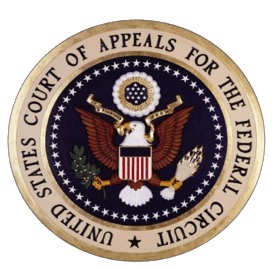“The CAFC noted that its own recent cases also concluded that ‘communications threatening suit or proposing settlement or patent licenses can be sufficient to establish personal jurisdiction.’”
 On May 12, the U.S. Court of Appeals for the Federal Circuit (CAFC) reversed and remanded the dismissal of a declaratory judgment action in an appeal from the U.S. District Court for the Northern District of California. The complaint was brought by Trimble, Inc. (Trimble) and Innovative Software Engineering, LLC (ISE) against PerDiemCo, seeking a declaratory judgment that neither Trimble nor ISE infringed any of the 11 patents that PerDiemCo asserted against it.
On May 12, the U.S. Court of Appeals for the Federal Circuit (CAFC) reversed and remanded the dismissal of a declaratory judgment action in an appeal from the U.S. District Court for the Northern District of California. The complaint was brought by Trimble, Inc. (Trimble) and Innovative Software Engineering, LLC (ISE) against PerDiemCo, seeking a declaratory judgment that neither Trimble nor ISE infringed any of the 11 patents that PerDiemCo asserted against it.
Infringement Allegations
PerDiemCo, a Texas LLC, is the assignee of the 11 patents at issue, which all relate to electronic logging devices and/or geofencing. Its sole owner, officer, and employee works in Washington, D.C. and rents office space in Texas. Trimble and ISE (Trimble’s wholly owned subsidiary) manufacture and sell devices and services that rely on the Global Position System (GPS), including electronic logging devices and the like, as well as geofencing products. Trimble is a Delaware corporation headquartered in Sunnyvale, California, and ISE is an Iowa LLC headquartered in Iowa. In 2018, PerDiemCo sent a letter to ISE accusing ISE of infringing PerDiemCo’s electronic logging device patents and proposing negotiations for ISE to obtain a nonexclusive license to practice PerDiemCo’s patents with a draft nondisclosure agreement attached. ISE forwarded this letter to Trimble, who informed PerDiemCo that Trimble would be the point of contact in resolving the matter. PerDiemCo responded in later communications with accusations against Trimble, in addition to ISE, for infringement of its patents related to electronic logging devices and geofencing. PerDiemCo communicated with Trimble at least twenty-two times throughout negotiations, and eventually PerDiemCo threatened to sue Trimble for patent infringement in the Eastern District of Texas.
In 2019, Trimble and ISE filed a complaint in the Northern District of California where Trimble is headquartered seeking declaratory judgment of noninfringement on the matter, arguing that PerDiemCo was subject to the court’s jurisdiction under specific personal jurisdiction (as opposed to general personal jurisdiction). Citing Red Wing, which stated that “[a] patentee should not subject itself to personal jurisdiction in a forum solely by informing a party who happens to be located there of suspected infringement” because “[g]rounding personal jurisdiction on such contacts alone would not comport with principles of fairness,” the court held that “exercising specific personal jurisdiction over PerDiemCo would be constitutionally unreasonable.” Red Wing Shoe Co. v. Hockerson-Halberstadt, Inc., 148 F.3d 1355 (Fed. Cir. 1998).
Due Process and Personal Jurisdiction Requirements
In reviewing the case, the CAFC applied Federal Circuit law in determining whether the district court erred in dismissing the case for lack of personal jurisdiction, because “the jurisdictional issue is intimately involved with the substance of the patent laws.” Because California law permits service of process in accordance with the Due Process Clauses of the U.S. Constitution, the CAFC focused on whether the exercise of jurisdiction would be consistent with due process. Under International Shoe, a defendant must have sufficient contacts with the forum State that exercising jurisdiction over the defendant would be “reasonable, in the context of our federal system of government” and “does not offend traditional notions of fair play and substantial justice.” Int’l Shoe Co. v. Washington, 326 U.S. 310, 316–17 (1945) Whether a defendant has sufficient contacts within the state rests on if the defendant has purposefully availed itself of the privilege of conducting activities within the forum State. Specifically, sufficient contacts must show that the defendant deliberately reached out beyond its home, and the plaintiff’s claims “must arise out of or relat[ing] to the defendant’s contact with the forum.” Bristol-Myers Squibb Co. v. Superior Ct. of Cal., 137 S. Ct. 1773, 1779 (2017). Furthermore, the CAFC reiterated that the exercise of personal jurisdiction must comport with the notions of fair play and substantial justice, identified by the following five considerations: 1) the burden on the defendant; 2) the forum State’s interest in adjudicating the dispute; 3) the plaintiff’s interest in obtaining convenient and effective relief; 4) the interstate judicial system’s interest in obtaining the most efficient resolution of controversies; and 5) the shared interest of the several States in furthering fundamental substantive social policies. Burger King Corp. v. Rudzewicz, 471 U.S. 462 (1985).
Recent Cases Clarify Scope of Red Wing
Turning to Red Wing, the CAFC acknowledged its previous explanation that “a cease-and-desist letter that included an offer for a license was ‘more closely akin to an offer for settlement of a disputed claim rather than an arms-length negotiation in anticipation of a long-term continuing business relationship.’” It also referred to its reasoning that “fair play and substantial justice afford a patentee sufficient latitude to inform others of its patent rights without subjecting itself to jurisdiction in a foreign forum.” However, the CAFC then turned to recent developments made in clarifying the scope of Red Wing. Since the Red Wing decision, the Supreme Court has made clear that personal jurisdiction analysis cannot rest on special patent policies. The court added: “To the extent that Red Wing and other cases have suggested otherwise, that language is not consistent with these Supreme Court cases. In cases after Red Wing, the Court has emphasized that ‘[p]atent law is governed by the same . . . procedural rules as other areas of civil litigation.’ SCA Hygiene Prods. Aktiebolag v. First Quality Baby Prods., LLC, 137 S. Ct. 954, 964 (2017). Furthermore, the Court held that communications sent into a state may, indeed, create specific personal jurisdiction, depending on their nature and scope, and therefore negotiation efforts may be considered activities directed at residents of the forum State. Quill Corp. v. North Dakota, 504 U.S. 298, 308 (1992). The CAFC then referred to the Supreme Court’s recent decision in Ford Motor Co., which held that even though Ford’s “veritable truckload of contacts” with the two states were not directly related to the underlying lawsuit, they were still “relevant in assessing the link between the defendant’s forum contacts and the plaintiff’s suit.” Ford Motor Co. v. Mont. Eighth Jud. Dist. Ct., 141 S. Ct. 1017 (2021). The CAFC likened Ford’s sales of vehicles and presence of dealerships in a forum to PerDiemCo’s sale of nonexclusive patent licenses.
The CAFC also noted that its own recent cases also concluded that “communications threatening suit or proposing settlement or patent licenses can be sufficient to establish personal jurisdiction.” For example, in Jack Henry, a defendant sent communications to eleven banks regarding patent infringement and inviting nonexclusive licenses. The CAFC rejected the defendant’s argument that the court cannot rely on patent enforcement letters as a basis for jurisdiction over a declaratory judgment action, stating that Red Wing “did not create such a rule” because it would violate the Supreme Court’s directive to make a variety of considerations in jurisdiction determinations. Jack Henry & Associates, Inc. v. Plano Encryption Technologies LLC, 910 F.3d 1199 (Fed. Cir. 2018).
Extensive Contacts with the Forum Satisfies Purposeful Availment Requirements
In considering the extent of communication in the present case, the CAFC concluded that PerDiemCo had purposefully availed itself of the rights and privileges of California and thus jurisdiction is proper. Unlike in Red Wing, where communications between the parties was limited, PerDiemCo exchanged at least twenty-two communications with Trimble over a period of three months. These communications led to arms-length business negotiations in anticipation of a long-term relationship, including an attempt by PerDiemCo to enter into binding mediation on the infringement allegations, repeated assertions of additional infringement allegations, and threats of legal action against Trimble:
As its actions make clear, PerDiemCo repeatedly contacted Trimble and ISE in California, accumulating an extensive number of contacts with the forum in a short period of time. Unlike Red Wing, PerDiemCo’s actions went far beyond ‘solely . . . informing a party who happens to be located [in California] of suspected infringement.’
The CAFC also rejected PerDiemCo’s argument that the assertion of jurisdiction would not comply with the notions of fair play and substantial justice. Most notably, it found that PerDiemCo would not be burdened by litigating the case in California because 1) PerDiemCo’s presence in Texas was merely pretextual; 2) PerDiemCo repeatedly filed lawsuits in Texas despite its owner having never visited its Texas office; and 3) PerDiemCo threatened to sue ISE in Iowa, “similarly far” from the owner’s office in D.C. Thus, PerDiemCo had not made a compelling case that jurisdiction would be unreasonable.

![[IPWatchdog Logo]](https://ipwatchdog.com/wp-content/themes/IPWatchdog%20-%202023/assets/images/temp/logo-small@2x.png)

![[[Advertisement]]](https://ipwatchdog.com/wp-content/uploads/2024/04/Patent-Litigation-Masters-2024-banner-early-bird-ends-Apr-21-last-chance-938x313-1.jpeg)
![[Advertisement]](https://ipwatchdog.com/wp-content/uploads/2024/04/Patent-Litigation-Masters-2024-sidebar-early-bird-ends-Apr-21-last-chance-700x500-1.jpg)

![[Advertisement]](https://ipwatchdog.com/wp-content/uploads/2021/12/WEBINAR-336-x-280-px.png)
![[Advertisement]](https://ipwatchdog.com/wp-content/uploads/2021/12/2021-Patent-Practice-on-Demand-recorded-Feb-2021-336-x-280.jpg)
![[Advertisement]](https://ipwatchdog.com/wp-content/uploads/2021/12/Ad-4-The-Invent-Patent-System™.png)







Join the Discussion
No comments yet.